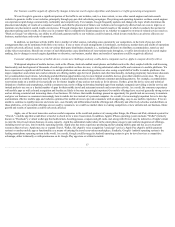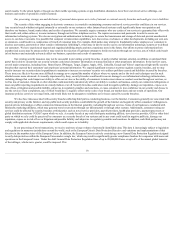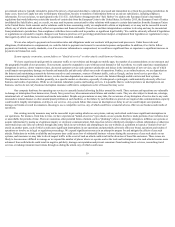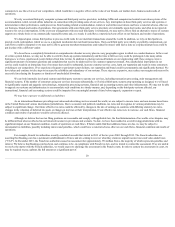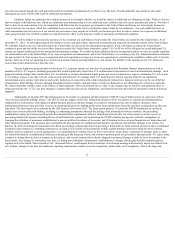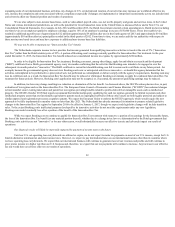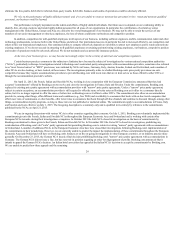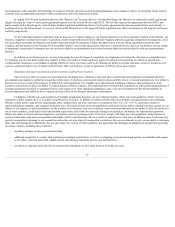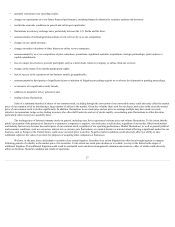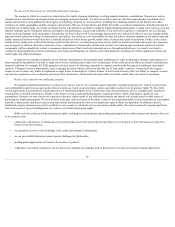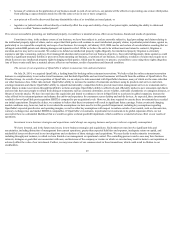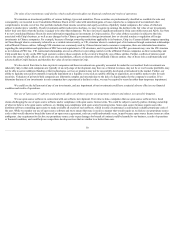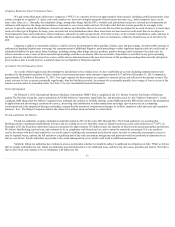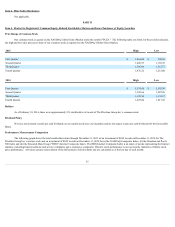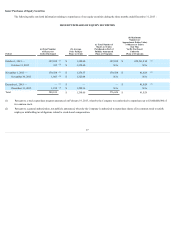Priceline 2015 Annual Report Download - page 30
Download and view the complete annual report
Please find page 30 of the 2015 Priceline annual report below. You can navigate through the pages in the report by either clicking on the pages listed below, or by using the keyword search tool below to find specific information within the annual report.
• quarterly variations in our operating results;
•changes in expectations as to our future financial performance, including financial estimates by securities analysts and investors;
• worldwide economic conditions in general and in Europe in particular;
• fluctuations in currency exchange rates, particularly between the U.S. Dollar and the Euro;
• announcements of technological innovations or new services by us or our competitors;
• changes in our capital structure;
• changes in market valuations of other Internet or online service companies;
• announcements by us or our competitors of price reductions, promotions, significant contracts, acquisitions, strategic partnerships, joint ventures or
capital commitments;
•loss of a major travel service provider participant, such as a hotel chain, rental car company or airline, from our services;
• changes in the status of our intellectual property rights;
• lack of success in the expansion of our business models geographically;
• announcements by third parties of significant claims or initiation of litigation proceedings against us or adverse developments in pending proceedings;
• occurrences of a significant security breach;
• additions or departures of key personnel; and
• trading volume fluctuations.
Sales of a substantial number of shares of our common stock, including through the conversion of our convertible notes, could adversely affect the market
price of our common stock by introducing a large number of sellers to the market. Given the volatility that exists for our shares, such sales could cause the market
price of our common stock to decline significantly. In addition, fluctuations in our stock price and our price-to-earnings multiple may have made our stock
attractive to momentum, hedge or day-trading investors who often shift funds into and out of stocks rapidly, exacerbating price fluctuations in either direction,
particularly when viewed on a quarterly basis.
The trading prices of Internet company stocks in general, including ours, have experienced extreme price and volume fluctuations. To the extent that the
public's perception of the prospects of Internet or e-commerce companies is negative, our stock price could decline, regardless of our results. Other broad market
and industry factors may decrease the market price of our common stock, regardless of our operating performance. Market fluctuations, as well as general political
and economic conditions, such as a recession, interest rate or currency rate fluctuations, or a natural disaster or terrorist attack affecting a significant market for our
business, such as Europe or the United States, could cause our stock price to decline. Negative market conditions could adversely affect our ability to raise
additional capital or the value of our stock for purposes of acquiring other companies or businesses.
We have, in the past, been a defendant in securities class action litigation. Securities class action litigation has often been brought against a company
following periods of volatility in the market price of its securities. To the extent our stock price declines or is volatile, we may in the future be the target of
additional litigation. This additional litigation could result in substantial costs and divert management's attention and resources, either of which could adversely
affect our business, financial condition and results of operations.
27


